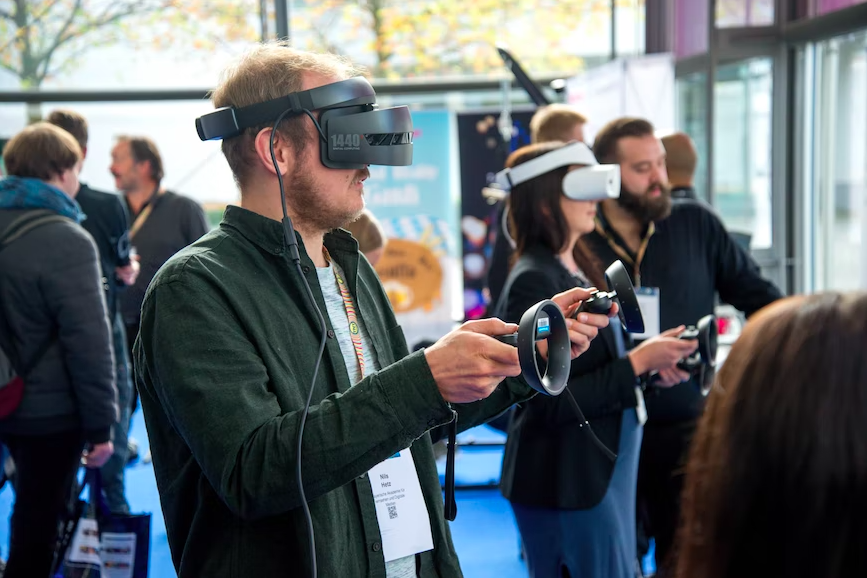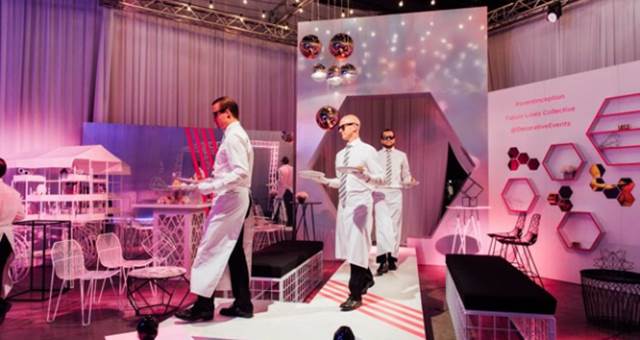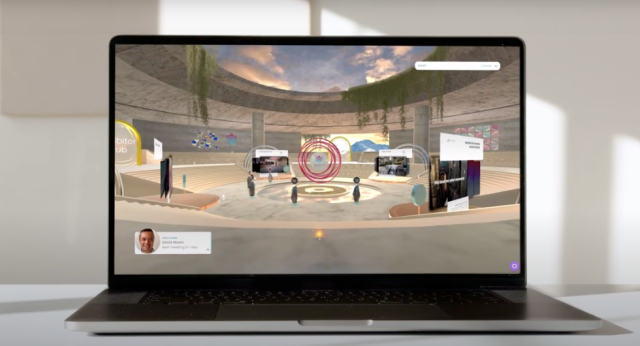
The appetite to return to in-person events demonstrates just how important presence is in shaping human interactions. Events over the past three years have demonstrated that virtual events are possible, and can indeed be highly effective, but nonetheless we do want to go back to meeting people in person where possible.
However, the investment into the virtual was a good learning curve for events organisers. Going forward, rather than move away from these technologies, EventsAir global sales and marketing director Joe Ciliberto says they will continue to be a source of innovation for forward-thinking organisations and should be embraced.
“Don’t be afraid of the future of event tech. Use it to increase content accessibility, enable higher participation and engagement, and increase the ROI on your event,” Ciliberto says.

“For example, the hybrid approach will continue to be critical in ensuring you keep content accessible and meet your audience’s expectations both on a sustainable and financial front.”
Thanks to the prevalence of streaming and cloud services in their daily entertainment, audiences now expect “bingeable”, on-demand and perpetual access to content, and it will be important that event technologies preserve not only the content of the event, but also the experience.
However, delivering the hybrid and modern approach to content has its challenges. Events need to find ways to utilise technology to reduce costs and manpower while maintaining the skillsets to deliver an experience that allows online and remote participants to feel as involved.
“This is what EventsAir aims to deliver through a singular platform that can handle anything from check-ins and QR codes for those attending inperson, to those consuming the content via mobile or online.”
Stepping stones to the metaverse
The innovations happening around hybrid delivery will eventually lead the forward-thinking events organisers to the metaverse. As Sprintr director of business and innovation, Chris Schlueter, says, events are already experimenting with augmented reality to enhance the experience.
“It’s always exciting when seemingly small elements create a lasting memory, as was the case with an event using QR codes on decals throughout the exhibition which when scanned through an app, triggered an augmented reality experience,” Schlueter says.

Meanwhile, virtual attendees at another event were able to provide direct “reactions” feedback to the speaker via a virtual display. This was live and allowed the speaker to proverbially “read the room,” as they presented.
US-based tech research and consulting firm, Gartner predicts that by 2026, one-in-four people will spend at least one hour per day in the metaverse. These learnings that Schlueter mentions – the ability to provide rich digital media experiences and an authentic “presence” for virtual attendees – will directly feed into the metaverse experiences as they emerge.
Meanwhile, all the data being generated by these digital applications is going to assist events organisers to better understand their audiences and plan better events, Schlueter adds.
“We’ve come a long way from an event app simply being a repository for an agenda.” “Implementing this in the right way can cover all areas of an event from ticketing, contactless checkin, content streaming, in-door navigation and lead capture, to heat maps and the all-important post event reporting which can be digital gold when planning next year’s event.”
Putting sustainability at the core
Sustainability is no longer a “nice to have” in events. People are more aware than ever of humanity’s impact on the planet and the expectation is there that the activities they participate in are equally cognizant of that.
This is something that Huddle has been focused on using technology to address, the company’s director of operations, Rod Vowell, says.
“We have developed a reporting tool called HERO that allows our customers to view their meetings and events data all on one easy dashboard including tracking the environmental impact of their program,” Vowell says.
On the event management side, this ability to track environmental impact right down to an individual level also means that the overall impact of the entire event can be tracked and reported on. This is a critical step in being able to measure and take steps to set and meet sustainability goals.
“This is on top of the smaller, practical ways that events are now able to reduce their carbon footprint through technology,” Vowell adds.
“The enormous strides made in virtual event capabilities help reduce the per-attendee impact of events and opens them up to those working in remote areas where travel to a particular hub might be costly and inefficient.
“Additionally, paperless events have become the norm as clients and attendees alike have become more comfortable with apps being an essential part of every event.”
Addressing the drastic skills shortage
Technology innovation is also helping organisers beyond the attendee experience and sustainability. The unemployment rate in Australia is just 3.4 per cent – an almost unprecedented low – and this is disproportionately affecting businesses in the venue, events and hospitality spaces. Finding good employees in this environment requires innovative thinking, Jitjatjo co-founder and chief executive officer, Tim Chatfield, says.
“It has become abundantly clear that employers need to rethink how they handle and interact with their workforce. Employees no longer simply want flexibility, they demand it,” Chatfield says. “If employers want to be successful going forward, they need to accept this reality, create policies, and invest in technology that allows for it.”

In Chatfield’s view, the key to attracting top talent is to not only embrace flexibility, but also be seen as an employer that pays quickly and rewards good work. This is what the Jitjatjo platform for on-demand hospitality staffing focuses on enabling, he says.
“Our platform leverages AI and Empathic Intelligence to ensure the entire recruiting, hiring, and management process is efficient and unbiased.
“When workers arrive on time and do a good job, they get access to instant payment at the end of their shift to reward them for their work.”
As far as event technology is concerned, the past three years have been a story of accelerated innovation. The challenging conditions of the market meant that organisations needed to undergo years of transformation in a matter of months. That was reactionary, however, and an effort to adapt to global disruption.
Now, however, those technology investments have become a strategic opportunity. Events organisers that continue to build on their foundations and look for opportunities to innovate will find that event tech is set to explode in the coming years and provide unprecedented value to events of all scales.




